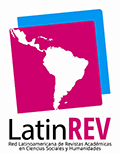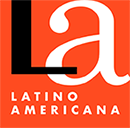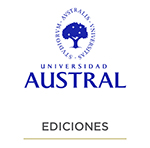Money Laundering and Willful Blindness
Abstract
The attribution of criminal liability usually has limitations related to mistake, either a mistake with respect to an element of the statutory definition of a criminal offense or a mistake as to the wrongfulness of the conduct constituting a criminal offense. Organized crime, particularly the one focused on money laundering and advised by professionals on the field, uses these edges of the criminal system to its advantage, alleging a state of ignorance to evade liability through a mistake with respect to an element of the statutory definition of a criminal offense, which is known as cases of “blindness to the facts” and “willful ignorance”.
The delimitation of these cases is at least difficult. We can say they involve behaviors which are objectively established in the definition of the crime without full representation of the elements of the crime definition, but with a suspicion that is acting in a potentially harmful way to some external interest and where the individual prefers to deliberately or consciously remain in prolonged ignorance as a means of obtaining some benefit without assuming their own risks or responsibilities.
In this train of thought, taking into account that those who force this state of ignorance claim to be in a state of mistake as to the wrongfulness of the conduct constituting a criminal offense, we will first refer to this kind of mistake and its implications in money laundering, then we will then develop the theory of willful blindness, its criticisms and its reception in Argentina.
Downloads
References
Alonso Alamo, M. (1989). La acción “libera in causa”. Boletín Oficial del Estado, España. https://www.boe.es/biblioteca_juridica/anuarios_derecho/abrir_pdf.php?id=ANU-P-1989-10005500108.
Bacigalupo, E. (1999). Principios constitucionales de derecho penal. Hammurabi.
Blanco Cordero, I. (2015) El delito de Blanqueo de capitales. Thompson Reuters Aranzadi.
Buompadre, J. (2021). Derecho penal: parte especial, doctrina y gráficos (3a ed.). ConTexto Libros.
Cesano, J. D. (2007). Error de tipo, criminalidad económica y delito de lavado de activos de origen delictivo: su tratamiento en la dogmática penal argentina. Revista de Derecho Penal y Procesal Penal, LX, 457-478.
Cesano, J. D. (2014). Estudios de derecho penal económico. Alveroni Ediciones.
Córdoba, F. (2015). Delito de lavado de dinero. Hammurabi.
Córdoba, F. (2021). Elementos de la teoría del delito. Hammurabi.
D’Albora, F. (H). (2011). Lavado de dinero (2a ed.). Ad-hoc.
Gabella, M. C. (2020). Ignorancia deliberada, ignorancia no imputable y principio de legalidad. Revista Discusiones, 25(2), 261-287 https://doi.org/10.52292/j.dsc.2020.2389.
Greco, L. (2013), Comentario al artículo de Ramón Ragues. Revista Discusiones, 13(2), 67-78. https://doi.org/10.52292/j.dsc.2013.2474.
Guzmán, S., Díaz Pucheta, S., Palavecino, P., Lespi, M. y Souad, H. (2023). Nuevas formas del lavado de activos. Actualidad Jurídica Penal y Procesal Penal, 305, B 3578 a B 3601.
Harold Sotelo, L. (2019). El error en el lavado de activos. Revista Nueva Época, (52), 69-87.
Lascano, C. (h), Agostinetti, M., Balcarce, F., Pérez Barberá, G., Buteler, E., Cortez de Arabia, A., Despontin, M., Lucero, Offredi, G., Suárez, M. y Vera Barros, O. (2005). Derecho Penal-Parte General. Editorial Advocatus.
Manrique, M. (2014). Ignorancia deliberada y responsabilidad penal. Isonomía. Revista de teoría y filosofía del derecho, (40), 163-195. https://doi.org/10.5347/40.2014.102.
Mir Puig, S. (2011). Derecho penal parte general (9a ed.). Editorial Reppertor.
Muñoz Conde, F. y García Arán, M. (2010). Derecho penal. Parte general (8a ed.). Tirant lo Blanch. https://www.derechopenalenlared.com/libros/Derecho_Penal_Parte_General_Munoz_Conde_Mercedes_Aran.pdf.
Pérez Barberá, G. (2021). ¿Dolo como indiferencia? Una discusión con Michael Pawlik sobre ceguera ante los hechos e ignorancia deliberada. En Letra: Derecho Penal, VI(11), 99-139. https://www.enletrapenal.com/_files/ugd/9db90b_076f290ed1a044aab50341fd08130650.pdf.
Ponce, J. (2014). El delito de lavado de activos. Ad-Hoc.
Ragués i Vallès, R. (1998a). La atribución del conocimiento en el ámbito de la imputación dolosa (Tomo I). Universitat Pompeu Fabra.
Ragués i Vallès, R. (1998b). La atribución del conocimiento en el ámbito de la imputación dolosa (tesis doctoral). Universitat Pompeu Fabra.
Ragués i Vallès, R. (2013). Mejor no saber. Sobre la doctrina de la ignorancia deliberada en derecho penal. Revista Discusiones, 13(2),11-38. https://doi.org/10.52292/j.dsc.2013.2472.
Silva Sánchez, J. M. (2022). Riesgo permitido en derecho penal económico. Atelier.
Silvestroni, M. (2004). Teoría constitucional del delito. Editores del Puerto.
Souto, M. (2022). COVID-19 y comisión del delito de blanqueo de dinero mediante las nuevas tecnologías. Revista Electrónica de Ciencia Penal y Criminología, (24-28). http://criminet.ugr.es/recpc/24/recpc24-28.pdf.
Vidal Albarracín, H. (2022). Lavado de activos: aspectos generales. En Meirovich, G. D. y Berruezo, R. (Dirs.), Ilícitos económicos y evidencia digital (pp. 445-455). IJ Editores. https://www.amfjn.org.ar/wp-content/uploads/2022/12/Ilicitos-Economicos-y-Evidencia-Digital.pdf.
Copyright (c) 2024 Sandra Guzmán, Sofía Diaz Pucheta

This work is licensed under a Creative Commons Attribution-NonCommercial-NoDerivatives 4.0 International License.
This license allows the copy, distribution, exhibition and representation of the work provided authorship is acknowledged and the work is properly quoted. Commercial use of the original work or the generation of derived works are not allowed.
The authors hereby guarantee the right to the first publication of the work to the Revista Jurídica Austral.
















































